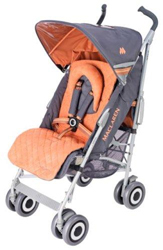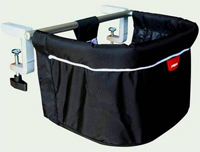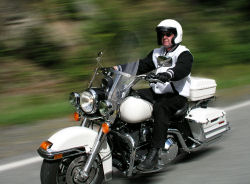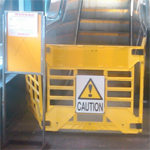Posts by Breakstone, White & Gluck
Motorists, Please Help Prevent Accidents: Look Closer for Bicycles and Motorcycles
It is Bay State Bike Week in Massachusetts, a time to focus on safety for cyclists. During this week, cyclists are hard to miss as they gather at large events in Boston, Cambridge and across the state.
But the daily reality is many Massachusetts cyclists are far less visible to drivers, spending the majority of their time riding alone or in small groups. And when drivers get behind the wheel, they usually pay attention to other motor vehicles and pedestrians at crosswalks. But bicyclists and motorcyclists tend to get lost in the scenery, which can lead to bicycle accidents and motorcycle accidents.
We do not make this observation alone. We join many others, including the Transport for London (TPL), which manages a complex transportation network that includes buses, railway, underground trams and more than 900 miles in roads. It also manages a popular cycle hire service, which allows visitors and residents to rent bicycles 24 hours a day from docking stations around the city.
TPL has gained an Internet following in recent years with its “Think!” campaigns, asking members of the public to test their awareness of what they are viewing. We encourage you to watch one eye-opening video below. Others can be found at http://www.awarenesstest.co.uk/.
http://www.youtube.com/watch?v=47LCLoidJh4
We suggest that you watch for changes or unique placements on the screen. But even with this warning, many people have to be told how the scene changes. The message: we should all take a closer look as we travel among others in our daily lives.
Motorists should take a closer look on the roadways to make sure they see bicyclists and motorcyclists. Doing so will prevent motor vehicle accidents, bicycle accidents, motorcycle accidents and save lives.
Read More
One Million Defective Baby Strollers Recalled
 The Consumer Product Safety Commission (CPSC) has reannounced the recall of an unsafe baby stroller that is connected to 149 reported incidents, involving fingertip amputations, lacerations and other personal injuries.
The Consumer Product Safety Commission (CPSC) has reannounced the recall of an unsafe baby stroller that is connected to 149 reported incidents, involving fingertip amputations, lacerations and other personal injuries.
The CPSC reannounced the product recall of Maclaren strollers sold from 1999 to November 2009. The recall was reannounced in cooperation with the distributor, Maclaren USA, Inc., of South Norwalk, Conn.
Approximately one million defective baby strollers were sold nationwide through various retailers, including Babies R Us and Target. The strollers are defective because they have a hinge mechanism that can amputate a child’s fingers or cause a laceration when the consumer opens and unfolds the stroller.
The CPSC advises parents to stop using the defective baby stroller immediately and contact the company for a free repair kit, which includes a fabric cover for the hinge mechanism.
When the product was first recalled in 2009, the CPSC had received reports of 15 incidents, including 12 finger amputations. The CPSC made the reannouncement after the number climbed to 149, including 37 injuries that occurred after the 2009 recall. To date, the Maclaren stroller recall involves 17 overall reports of fingertip amputations as well as other serious personal injuries.
Parents can determine whether they have a defective children’s product by checking to see if the word “Maclaren” is printed on the stroller. If so, they should contact the company.
The affected models are Volo, Triump, Quest Sport, Quest Mod, Techno XT, Techno XLR, Twin Triumph, Twin Techno and Easy Traveler. The recalled strollers are single and double umbrella models.
Models sold after May 2010 have a different hinge design and are not included in the product recall.
Contact our dedicated Boston attorneys today
The Boston Massachusetts product liability lawyers at Breakstone, White & Gluck have over 80 years combined experience handling cases involving serious personal injury. We are experienced in handling injuries resulting from product recalls, defective motor vehicles and unsafe children’s toys and products.
If you have a case, contact us today at 617-723-7676 or use our contact form.
Helmets Protect Bicyclists of All Ages
 Bay State Bike Week is a good time to remember safety for Massachusetts bicyclists, motorists and all who travel the roads.
Bay State Bike Week is a good time to remember safety for Massachusetts bicyclists, motorists and all who travel the roads.
Motorists can commit to being vigilant in looking out for bicyclists this summer and slowing down. Bicyclists can ask whether they have taken all possible safety precautions.
These safety precautions must include bicycle helmets. Bicycle helmets are 85- to 88-percent effective in mitigating head and brain injuries in bike crashes, according to the National Highway Traffic and Safety Administration (NHTSA).
Nearly 70 percent of all fatal bike crashes involve head injuries, according to NHTSA figures. But only about 20 to 25 percent of all bicyclists wear helmets.
Individual states govern whether bicyclists must wear helmets. California was the first state to pass a bicycle helmet law in 1986. Twenty five years later, 21 other states have adopted laws aimed at cyclists under age 16. Fourteen states have no helmet laws, though the NHTSA recommends states adopt legislation.
Massachusetts requires helmets be worn by those 16 and younger while operating a bicycle or traveling on one as a passenger. Helmets must be approved by the Consumer Product Safety Commission.
Adults in Massachusetts and other states should not wait for the law to require them to wear helmets. In 2006, 773 bicyclists were killed and another 44,000 were injured in traffic crashes across the country. Children 14 and younger accounted for 98 of those fatalities, making this one of the most frequent causes of injury related death for young children. But the other 675 bicyclists were older and many of them could have also benefited from the protection of a bicycle helmet.
Click here for more information about bicycle helmet laws from the National Highway Traffic Safety Administration.
Read More
Parents Urged to Stop Using Infant Child Chairs
 The U.S. Consumer Product Safety Commission (CPSC) is urging parents to stop using a clip-on table top chair for children that poses a threat of detaching and causing serious injuries.
The U.S. Consumer Product Safety Commission (CPSC) is urging parents to stop using a clip-on table top chair for children that poses a threat of detaching and causing serious injuries.
The CPSC reports it is aware of numerous incidents involving the “metoo” chairs imported by phil&teds USA Inc. of Fort Collins, Colorado. Children have suffered impact and head injuries when the chair detaches from the table and causes them to fall with it. Tens of thousands of chairs may have been distributed since May 2006 through Amazon, Buy Buy Baby, Target, Toys R Us and other merchants.
The company has refused to agree to a national product recall that is acceptable to the CPSC. The company has offered a repair kit for the defective products, but it is not approved by the CPSC.
The defective children’s products consist of a nylon fabric seat and a metal frame that clamps to tables using two metal vise clamps. The upper part of each clamp rests on the table top and has either a rubber clamp pad on its underside or a rubber boot covering it.
The CPSC reports the chair’s clamps can detach from a variety of table surfaces and when children move around or push their feet against other objects.
Another CPSC concern is the lack of plastic spacers between the horizontal metal bar and the clamps. If one side of the chair detaches, there is a risk for pinching and cutting children’s fingers or causing possible amputation if fingers are caught between the defective chair and a table.
The CPSC states that the defective products have no product warning about the lack of plastic spacers. Some chair models have the spacers and are under evaluation by the CPSC.
Finally, the CPSC is concerned about misleading product packaging and instructions. The agency said the packaging actually shows the chair being used in a way that may lead to detachment from a table, but there is no instruction warning against this use.
Read More
Parents Reminded of Social Host Liability in Prom Season
It is prom and graduation season, an important time for parents to speak to their teenagers about the dangers of drinking and driving. While the priority is on our children’s safety, parents also need to understand social host liability in Massachusetts if underage drinkers consume alcohol in their home.
It is well known that anyone under 21 who drinks alcohol in Massachusetts can be charged criminally, as can anyone who furnishes alcohol to a person under 21. But many people do not know that under the state’s social host responsibility law , there are serious consequences for parents who allow teens and their friends to consume alcohol in their homes. Parents may face imprisonment and fines under the law as well as civil penalties.
“The most important reason to follow this law is the safety of our children and other travelers on the road,” said Boston personal injury attorney Marc L. Breakstone, who has experience handling Massachusetts social host liability cases. “Even if the parents are not home and not aware of the illegal consumption of alcohol in their homes, they can still be criminally and civilly liable under this law.”
Click here to read more about the Massachusetts social host responsibility law from the Boston, Massachsuetts premises liability lawyers at Breakstone, White & Gluck.
Read More
Motorcycle Safety Awareness Month Time to Consider Helmets and Safety Gear
 Motorcycling is a fun way to pass a sunny afternoon, but one that requires taking some safety precautions. Motorcyclist deaths have been rising in recent years – more than doubling in 2008 from the record low in 1977. The federal government estimates that per mile traveled, the number of deaths on motorcycles in 2007 was 37 times the number of people in cars.
Motorcycling is a fun way to pass a sunny afternoon, but one that requires taking some safety precautions. Motorcyclist deaths have been rising in recent years – more than doubling in 2008 from the record low in 1977. The federal government estimates that per mile traveled, the number of deaths on motorcycles in 2007 was 37 times the number of people in cars.
These figures mean it is important to dress to protect yourself in case of motorcycle accidents.
Helmets: Helmets are especially important. They are 37 percent effective in preventing motorcycle deaths and 67 percent effective in preventing brain injuries, according to National Highway Traffic Safety Administration (NHTSA) figures.
Twenty states and Washington D.C. require all riders to wear motorcycle helmets, including Massachusetts and Vermont. New Hampshire has no motorcycle helmet law. Rhode Island, Maine and Connecticut have laws that require younger operators to wear helmets.
If you are looking for a helmet, look for one that meets Department of Transportation (DOT) standards. All adult-sized helmets have been required to meet these standards since 1980. Helmets may be additionally approved by the Snell Memorial Foundation, but this testing standard is voluntary for helmet manufacturers.
There are several types of helmets available on the market, but full-face helmets provide the most protection in case of motorcycle accidents. Other types of helmets include open-face helmets and “shorty” half-helmets. If you choose an open-face helmet, make sure to buy a pair of safety eyeglasses. Shorty half-helmets are generally not recommended because they leave a large area of your face and head exposed in motorcycle accidents.
Lastly, it’s important to make sure you choose the right size helmet. If a motorcycle dealer isn’t ordering your helmet for you, measure the largest part of your head with a tape measure and call the manufacturer. Most helmets are sold in small, medium, large or extra large, so tell the customer service representative your measurement and ask them what size helmet you need.
Clothing: When it comes to jackets and pants, choose the most sturdy materials for the most protection. Leather is considered the best, but denim and corduroy also work. If you worry about overheating, choose pants and vests with zippered vents. And remember, always wear gloves to protect your hands in case of a motorcycle accident or fall on the roadway.
Reflective Clothing: The more visible you are to other drivers, the better your chances are for avoiding a motorcycle accident. Wear brightly colored jackets and pants or reflective material that can be seen at all hours day or night.
Eye Protection: Many motorcyclists choose helmets with an approved shield covering their eyes. Others use separate safety goggles or shatterproof glasses. Make sure your eye protection is clean and unscratched each time before you start riding. If you use a tinted lens for the bright sun, be prepared. Take a clear lens as well in case your ride goes into the night.
Click here for more on state motorcycle helmet laws.
Click here for more information about motorcycle helmets and other safety gear from the Motorcycle Safety Foundation.
Read More
Workers’ Memorial Day in Massachusetts Remembers Workplace Victims
Every year, Massachusetts families and organizations come together to honor the men and women who are killed and injured while on the job. This year, on April 28, the Massachusetts Coalition for Occupational Safety and Health (MassCOSH), the Massachusetts AFL-CIO, and the Greater Boston Labor Council are co-sponsoring Workers’ Memorial Day and are publishing the 2011 report: Dying for Work in Massachusetts: Loss of Life and Limb in Massachusetts Workplaces.
“It is critical that Massachusetts employers improve the safety of their workplaces to protect their workers. The high rate of death and injury on the jobsite is still taking a horrible toll on Massachusetts workers and their families. It is also unfortunate that enforcement continues to suffer budget cuts,” said Boston personal injury lawyer David White.
As stated in this sobering report, its purpose is to “highlight the fact that work continues to kill and maim workers in epidemic and alarming numbers. The saddest aspect to this loss in lives and limbs is that work-related injuries and illness are preventable.”
The report describes in clear detail the tragedy facing Massachusetts workers and their families. In 2010 alone, 47 Massachusetts workers lost their lives while on the job. (Breakstone, White and Gluck has the privilege and honor of representing the family of one of these deceased workers in their claim for his pain and suffering and wrongful death while on the job.)
The top three causes of fatalities among Massachusetts workers in 2010 were transportation (12 deaths: drivers or workers on roads involved in motor vehicle accidents and plane/helicopter crashes), falls (9 deaths: half being construction site accidents), and commercial fishing (4 deaths).
On Workers’ Memorial Day, we honor the fallen by demanding stronger workplace health and safety protections under the Occupational Health & Safety Administration, because it is every person’s right to be safe in their own work environment.
Join us on Thursday April 28, 2011 from 12:15 to 1:15 p.m. outside the Massachusetts State House as we mourn for the dead and fight for the living.
Breakstone, White & Gluck is a proud sponsorof MassCOSH, an organization with a great reputation for protecting workers and improving workplace safety.
Salmonella in Alfalfa Sprouts Prompts Recall in Massachusetts
UPDATE
Jonathan’s Sprouts of Rochester, MA, has widened the recall of its sprout products due to Salmonella contamination. The recall now includes all sell-by dates, including its conventional, organic, and bulk products. The recall includes other sprouts, such as radish, dill, and gourmet mix. Check below for stores where these products were sold. Do not eat them! Return them to the store for a refund.
More information: FDA Recall Press Release.
ORIGINAL POST
The USDA has found Salmonella, a dangerous bacteria related to food poisoning, in Jonathan’s Alfalfa Sprouts products.
 Salmonella, if ingested, can cause serious and sometimes fatal illness and infections in young children, frail or elderly people, and others with weakened immune systems. The symptoms of Salmonella include fever, diarrhea (possibly bloody), nausea, vomiting, and abdominal pain.
Salmonella, if ingested, can cause serious and sometimes fatal illness and infections in young children, frail or elderly people, and others with weakened immune systems. The symptoms of Salmonella include fever, diarrhea (possibly bloody), nausea, vomiting, and abdominal pain.
Jonathans Sprouts has issued an immediate recall of the following effected products:
- Jonathan’s 4oz Alfalfa Sprouts
- Jonathan’s 4oz Alfalfa with Radish Sprouts
- Jonathan’s 4oz Gourmet Sprouts
- Jonathan’s 4oz Alfalfa with Dill Sprouts
- Jonathan’s 8oz Alfalfa Sprouts
Massachusetts Escalator Accident Follows Years of State’s Failure to Inspect
 A recent public records request made by the Boston Globe shows the state has failed to regularly inspect approximately 75 percent of the escalators in Massachusetts malls.
A recent public records request made by the Boston Globe shows the state has failed to regularly inspect approximately 75 percent of the escalators in Massachusetts malls.
From 2008 to 2010, only 44 of the state’s 188 mall escalators received annual inspections as required by law. Inspectors missed one or two inspections during those three years on 144 escalators.
When mall escalators were inspected, they needed repairs in more than half the cases. Mall escalators were shut down 22 times.
The newspaper made the public records request following the wrongful death of 4-year-old Mark DiBona last month in an escalator accident in a Sears department store at the Auburn Mall near Worcester. The child fell through a 6-inch-wide gap between the handrail and the glass barrier.
The state Department of Public Safety suspended the two inspectors who approved the defective escalator for use.
The state’s failure to inspect its escalators dates back at least 15 years. In 1995, the Globe reported that nearly 40 percent of the state’s escalators and elevators had expired inspections.
The state currently has 34,000 elevators and 900 escalators for 51 inspectors to examine. Two dozen of those positions were created in 2010, the same year an audit found that nearly a third of the state’s elevators and escalators had expired inspections. Fifty one inspectors is the most the state has had in years, though some specialists say they still carry a heavy workload.
Beyond staffing, some specialists in the field say that inspectors spend more time on elevators and are less experienced with escalators, which may contribute to escalator accidents in Massachusetts.
Boston personal injury lawyer David White on the findings: “It is encouraging that the state is now catching up on the backlog of inspections. What is discouraging, however, is how many violations they are finding. This is a strong indication that property owners and their own service companies may be putting the public at severe risk.”
To read the Boston Globe article reporting this data, click here.
Read More
Window Blind Design Reconsidered After Numerous Infant Deaths
The Consumer Product Safety Commission (CPSC) has asked manufacturers to re-design window blinds so as to eliminate the risk of infant wrongful death from strangulation.
Window blind manufacturers have known about the problem for decades, starting with a federal study in the 1980s that tied 41 child strangulation deaths to drapery and blind cords. Since then, manufacturers have dragged their feet when it comes to improving safety.
And infants are still dying. The NY Times reports that in August 2009, Kathleen Leeson put her 2-year-old son down for a nap. A short time later, Ms. Leeson discovered her son hanging, lifeless, an inch off the floor with the window blind cord wrapped around his neck. Further, in 2002 1-year-old Cheyenne Kaiser was found by her mother strangled sitting up in her crib, which was next to the window, with the inner window blind cord wrapped around her neck.
The CPSC has released a safety alert for concerned parents explaining the risk of personal injury and wrongful death to children from the various types of window blind cords. In its safety alert, the CPSC makes four recommendations to help prevent these tragic strangulation injuries:
- Use only cordless window blinds in all homes where children live or visit;
- Do not place cribs, beds, or furniture close to windows where children can climb and gain access to the cords;
- Make all loose cords inaccessible; and
- In windows with looped bead chains or nylon cords, use tension devices to keep the cord taut.
Moreover, in response to the industry’s unenthusiastic attempts at improving product safety, a task force of regulators, consumer advocates, and industry leaders have come together to find a solution by the fall of 2011.
The CPSC has also warned the window blind industry that, if it cannot reach a solution soon to minimize these life-threatening dangers, it may face mandatory safety regulations.


